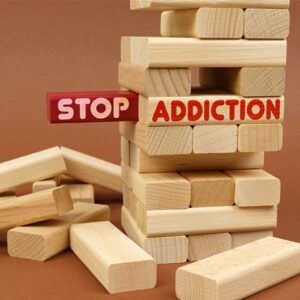
Being infected by bloodborne pathogens is something we do not want to happen when dealing with them. The bloodborne pathogens training courses discuss the common safety precautions we should consider to shield ourselves from transmission.
These courses will also teach us to put ourselves first before others constantly. Simply because if you are already infected, treating others will be useless. We must be knowledgeable about the dangers presented by these bloodborne infections, as well as how they could proliferate. If you want to prevent transmissions from happening, read on for more information about this in the following section.
Bloodborne Pathogens
Microbes that cause disease are known as pathogens. Bloodborne pathogens are viruses or bacteria that may infect and harm humans and can be found in bodily fluids such as blood. The three most notable of them are the AIDS-causing virus Human Immunodeficiency Virus (HIV), the Hepatitis C virus (HCV), and the Hepatitis B virus (HBV).
Bloodborne Pathogens Transmission
Sexual transmission or the use of injection drugs are the two main ways that bloodborne diseases spread. Nonetheless, there is a danger of infection with any contact with contaminated blood or other fluids. You will be able to gain a deeper understanding of these subjects as you advance through the bloodborne pathogens training course.
With the right knowledge, little concerns about HIV, HCV, and HBV exposure at work may be avoided. It would be better for you to get vaccinated against these illnesses. Nevertheless, no vaccinations have yet been available for HIV, so treating HIV carelessly might cause you to overlook important precautions.
Occupational Methods to Avoid Infection
Being knowledgeable about bloodborne infections is crucial, especially for frontline workers. Enrolling in bloodborne pathogens training programs is recommended to gain a thorough understanding of everything.
Protective steps must be taken to avoid exposure to infectious materials if your tasks call for you to conduct CPR, provide mouth-to-mouth resuscitation, accident clean up or provide first aid. These are some essential considerations for stopping the spread of bloodborne diseases at work.
- Handle any spills of blood or bodily fluids as though they were contagious.
- Always put your safety first while doing CPR or first aid on a victim.
- Use the proper personal protection equipment, such as gloves, goggles, and other items, as dictated by accident.
- Always wear a pocket mask with a one-way valve when conducting CPR to avoid coming into touch with potentially contagious bodily fluids.
- Spills should be quickly stored before the area is cleaned and sanitized.
- Use a brush and dustpan to remove the contaminated shattered glass. Use tongs or forceps even if you are wearing gloves.
- Treat every piece of garbage as though it contained sharps or potentially infectious materials.
- Turn contaminated garments inside out as you remove them to keep pathogens trapped. Place waste in bags or containers with the relevant labels.
- Remove personal protective equipment, then wash your hands or other exposed body parts with warm water and soap. Scrub each spot ferociously to get rid of any possible infectious germs.
- Put all contaminated goods and possibly contagious materials in bags or containers that may be closed. The bags must be labeled with a biohazard label and/or color-coded, typically in red.
- Avoid eating or smoking in your workspace. Your hands, food, and smoking materials pick up germs that enter your mouth.
Handling Being Exposed
Despite your best efforts, it’s possible that during an emergency case, you might come into contact with blood or bodily fluids. If that happens, take these actions to prevent the situation from worsening.
- After washing with soap and water, rinse the exposed region of your body with warm water. Cleansing the skin with an abrasive motion eliminates contaminants.
- Squeeze lightly to make an open wound bleed, then wash with soap and water.
- In the event of exposure, seek immediate medical attention.
- Your risk of contracting HIV, HCV, or HBV, as well as any additional follow-up care that may be required, will be discussed with you by a doctor.
Frequently Asked Questions:
Why is it important to protect yourself and others from bloodborne pathogens?
The term “bloodborne pathogens” (BBP) refers to harmful germs that are spread by blood from one infected person to another and cause sickness. These germs can potentially lead to deadly diseases in the worst circumstances.
What are the four ways bloodborne pathogens may be transmitted?
Bloodborne pathogens may be spread when blood or bodily fluid from an infected individual enters another person’s body by needlesticks, human bites, wounds, abrasions, or mucous membranes. Blood is an infectious component of all bodily fluids.
What is one of the easiest, most effective practices to control contamination?
Before and after handling food, going to the bathroom, changing diapers, or touching pets, wash your hands with soap and hot water. Wipe off kitchen surfaces or spills with paper towels, clean cloths, and hot, soapy water.
The Bottom Line: What We Know
As much as we may want to assist and care for others, it is crucial to prioritize ourselves. Remember that we cannot treat others properly if we are already infected. We must constantly adhere to workplace precautions to avoid infection to deal with persons who have bloodborne pathogens infections efficiently and effectively.


